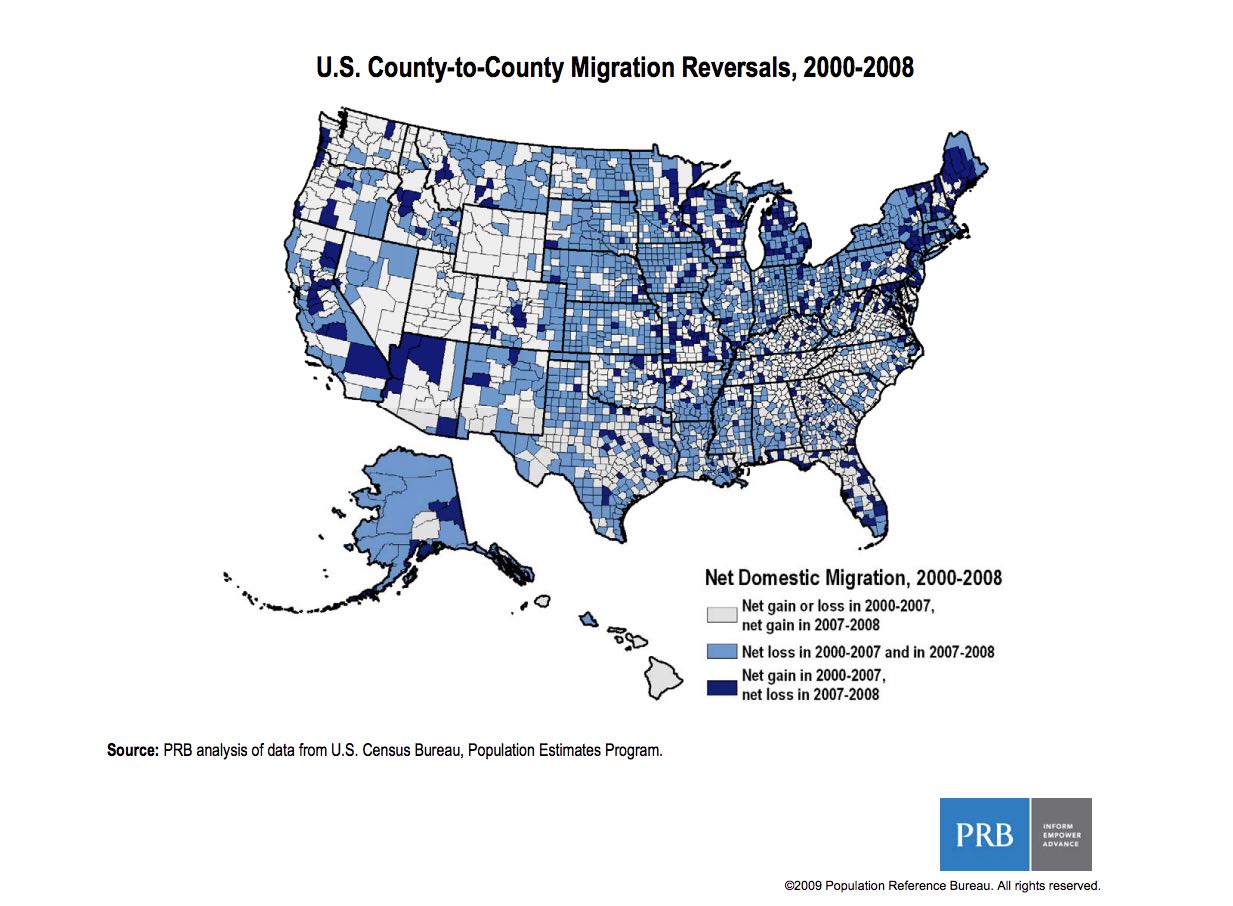U.S. Regional Population Losses Linked to High Unemployment
(2009) High unemployment rates are not just creating a drag on the U.S. economy, but are also linked to lagging population growth in economically distressed areas, according to a PRB analysis of data from the U.S. Census Bureau.






